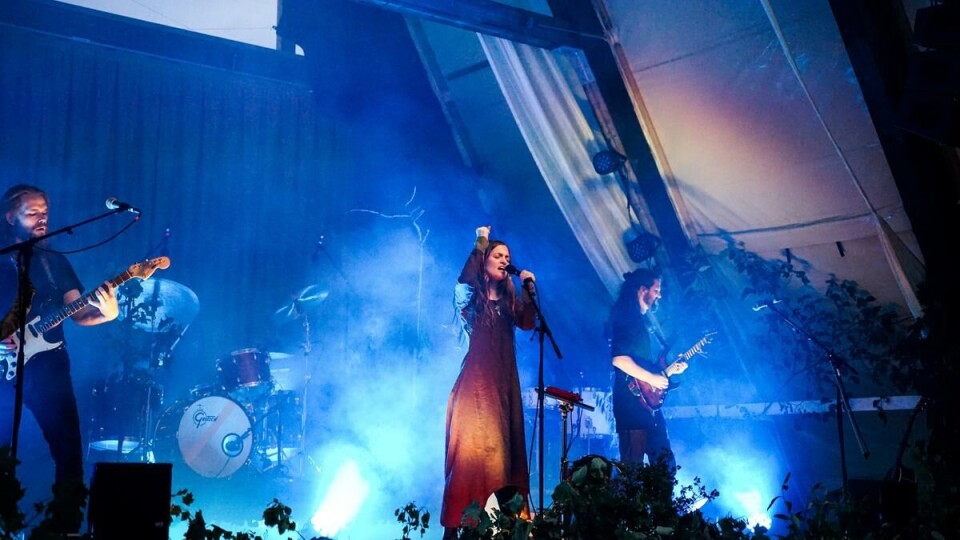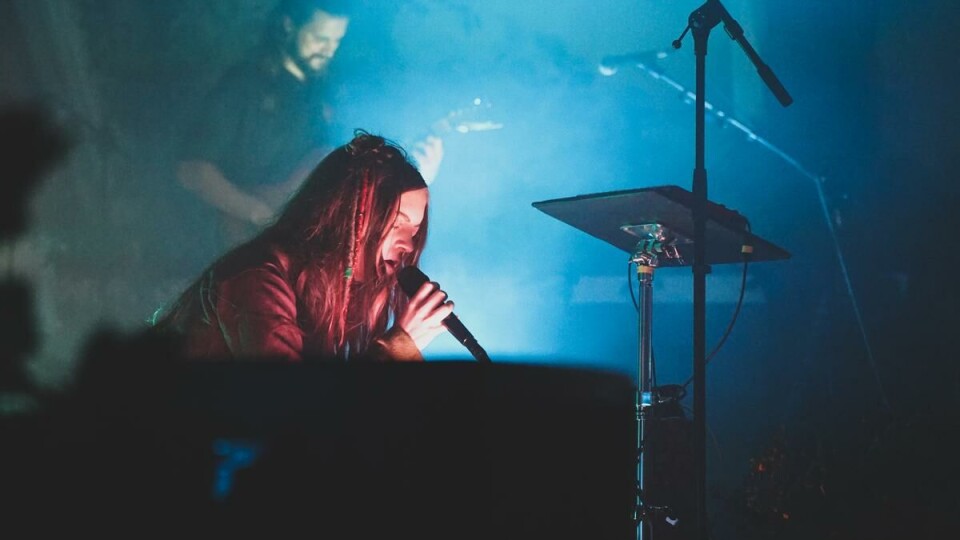
Gender and Equality in Music Industry in Norway
The 8th March is known as the International Women’s Day and is celebrated with more or less dedication in many countries around the world.
While in some countries it’s more about the symbolism of gifting flowers to women and taking them out for dinner, other countries are more interested in actually working on progress of equality of women and in general everyone despite the gender and revealing areas, which still require a lot of work and improvement.
There are ongoing discussions about gender pay gap, the amount of unpaid care work and its distribution, challenges in career growth and many other topics. Norway itself is known as being a country, which supports equality in the political agenda and takes it seriously when it comes to offering equal chances to everyone. But even here we will find examples of areas where there is still some work to do and despite all positive development, it is important to keep working on the understanding and importance of equality values in the society.

Music industry is probably for most of us not the area that we are thinking of when it comes to questions of gender equality, however it is a very interesting one. While we picture that we experience a gender diversity among music performers, data from a recent study in the US for example, shows that only 2 % of all music producers in summer 2021 were female.
Surveys show that women still often end up having the main responsibility for upbringing and housework. But then you have cool ladies like the music journalist Christine Dancke and DJ Annie. I hope that they never give up.
Another study from 2020 reveals that only 12.9 of all songwriters in the US were female and even among the single performers, the percentage of female artists hits just 30 %. Those are some numbers from across the ocean. While numbers reveal the general issue, it can be way more insightful to talk to real protagonists, to get some insights into the actual situation.
Katrine Stenbeck is songwriter, vocalist and musician in the Norwegian band Kalandra, a session singer in Wardruna and writes with and for various artists and producers around the world. That`s what she says about her connection to the music world:
- I’ve been a listener, consumer and avid craver of music ever since I can remember. The primary school I went to was quite musical and I used to sing in various school plays almost every week. I could perhaps add I might have had an ear for it early on, as both my parents love music, and my mother played piano by ear now and then, but they never forced me to do anything. So all in all I would say that my own inner drive and continuous work is the reason I’m still doing it today. I have a Bachelor in music from the Liverpool Institute for Performing Arts in Liverpool, England, and a one-year course in Live Electronics from Norges Musikkhøgskole which I would say is also quite a key factor in terms of my musical knowledge and the people I surround myself with today. I don’t think I would have gotten to where I am without musical education and wonderful teachers. I do praise them a lot, but it’s because they truly deserve to be recognized more. It’s all about positive affirmations, safe and secure guidance and continuous practice.

When I ask her about her thoughts on gender in music industry, particularly in Norway, Katrine says that as from her own experience as Norwegian musician in Oslo, she sees that there is a lot of support around women in the music industry. Further she explains:
- At least for young women trying to learn music software and learning how to write their own music. It’s perhaps tougher once you’re an adult and people expect you to know what you’re doing though. I have honestly felt very free in the Norwegian music industry to do what I want, I knew I’d never end up on the street if I pursued music here, and that was honestly good enough for me. I feel safe enough to have chosen “the long route” so to speak, carefully laying one brick on top of another, never signing anything I don’t agree with and thanks very much in part to the Institute I went to in Liverpool who taught me how to break down contracts. I own all of my own ISRC codes for example, which is the master of the recorded song. Nobody else but us own the music that Kalandra makes, and it’s crazy to me to see how successful artists still in this day and age get screwed over by big labels.

- It’s great to see though how after being exploited, Taylor Swift buckles up and has the stamina to record all of her greatest hits all over again just to make sure she owns her own ISRC codes of the new recordings. There should be more courses on what to look out for in a music agreement. You shouldn’t have to take a Bachelor's in order to know this stuff. Heck, very few Universities even teach these things because the teachers themselves haven’t actually been confronted with situations like that before, and it’s essential if the very point for your students is to have a professional career after they’ve graduated. For me I think it also helps that I have a bunch of great guys having my back, because one is stronger in numbers than standing alone, and in a way I think they also witness unfairness through my eyes when I stumble across something, and it helps me to see that they support me through it.
Musicians are lucky too these days in the sense that you can shape your own career much more than you could before.
- Another reason why I feel so free in Norway is also because I have witnessed the judgmental ways or ruling women (and men) in the music industry in the UK. There are some nasty behaviours still in power, but I would say musicians are lucky too these days in the sense that you can shape your own career much more than you could before. There is a shift happening, in exposing things for what they really are. You don’t really need a big label to make a name for yourself. If there is anything I really would like to still complain more about though, it’s the fact that songwriters in general don’t get paid what they deserve and don’t get fair cuts off of songs they’ve written for other artists etc, whether male or female. I’ve been caught in the wheel myself a few times as a stand alone songwriter for other artists who’s stuck in a difficult deal with a bigger label. I’m stepping away from that side of the business now, but it’s also because I now can afford to say no. I don’t need shady money. And there’s power in saying no. Self-respect is glorious.

Female artists have proven time and time again that you don’t need to sell sex in order to sell records.
As already mentioned, Katrine has been living and working in the UK for some time. Talking about whether she experienced any differences on the gender topic in music industry between UK and Norway, she explains:
- It’s difficult to answer because people and their social cultures are so complex. But I would say that beauty mattered perhaps more in the UK than in Norway, it was a bit more vain, but then again I also found exceptions to that assumption, where there were large subcultures interested in quality music more than popular current hits and its appearance. And these subcultures were quite large as well, large enough to build a career upon as the UK contains a larger group of people than Norway.I would say that in Norway there’s usually one large door you have to walk through, and approach carefully. If you say or do something wrong, you’re out very quickly. However, if you’re accepted into the business then there’s loads of opportunities to build upon. Whilst in the UK, there are many doors. A blessing and a curse. If one door shuts, another one opens. If you’re accepted into one door, it’s great, but know that there are still many more doors to open so you haven’t quite made it just yet as the business is large, much larger than in Norway. More opportunities, but the ladder is taller.
Asked about influence of gender and stereotypes, Katrine Stenbekk states, that stereotypes certainly are still influencing the younger generation, but she also thinks that there are ongoing changes. Katrine explains further that she experiences that people are talking a lot more about those issues and adds:
— Female artists have proven time and time again that you don’t need to sell sex in order to sell records. The music can in fact be enough in itself. But it’s also worth taking into account that humans are sexual beings, and we need to have a discussion around that too without getting flustered and feeling shame around that. There is nothing wrong with using your sensuality or sexuality in your art as long as it is a true form of expression for you as a human being, as long as you own it. I believe it’s all about intention. That’s how I navigate the business anyway, asking myself “what is their intention?”. We need diversity.

Ida Marie Brualøkken Søndrol is a sociology student in her final year at UiO. She explains that she actually was motivated to become a cultural sociologist by Kurt Schreiner who is one, but also known as lead guitarist in the Norwegian band Turbonegro. Ida has worked a lot as a volunteer at music festivals and most recently as a booker for the concert association Betong at Chateau Neuf. She started DJing and is looking forward to her first official gig. Ida is hoping to work with music and culture in one or another way after finishing her studies. Asked about her experiences and thoughts on gender in music industry, she replies:
- I experience my gender as a major handicap. This is because I have formed the impression that it is too late for me to enter the music industry as a recent graduate 34 years old when I am a woman. I hope that I’m wrong though. It may possibly have something to do with old gender roles, or that working in the music industry is difficult to combine with having childcare responsibilities. Surveys show that women still often end up having the main responsibility for upbringing and housework. But then you have cool ladies like the music journalist Christine Dancke and DJ Annie. I hope that they never give up.































